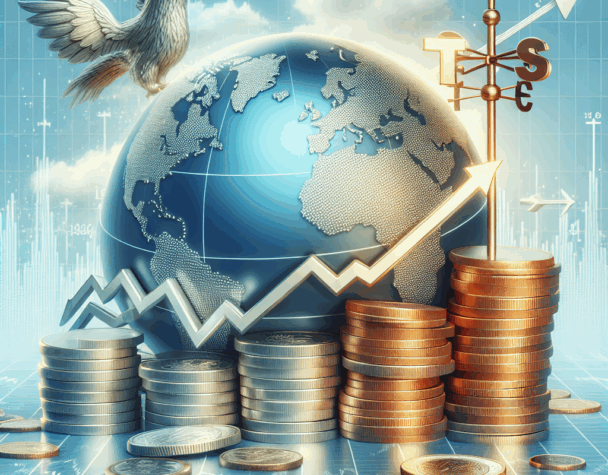
Market Volatility Amid Tariff Uncertainty and Policy Shifts
Fri, May 30, 2025Market Volatility Amid Tariff Uncertainty and Policy Shifts
Global financial markets are experiencing heightened volatility as investors grapple with the implications of recent U.S. tariff policies and other significant policy shifts. These developments are influencing investment strategies and economic forecasts worldwide.
U.S. Tariff Policies Stir Market Uncertainty
A recent U.S. trade court ruling has temporarily blocked President Donald Trump’s expansive tariff plan, providing short-term relief to global markets. However, the ruling has also introduced concerns about prolonged policy and economic uncertainty. Businesses may delay hiring, investment, and wage increases due to the ongoing unpredictability surrounding trade policies. Since the announcement of tariffs on April 2, markets have been volatile, with the S&P 500 up 3.8% and European and Asian stocks also rebounding, especially in export-sensitive sectors. Analysts caution that higher courts may overturn the ruling, maintaining a fluid policy environment. Investors are adapting by focusing on shorter-term, tactical strategies. The stop-and-go nature of the tariff policy is seen as harmful to long-term planning for businesses and reinforces a cautious approach by central banks. Overall, while markets reacted positively in the short term, the lack of clarity and potential economic stagnation pose major risks for the future. (reuters.com)
Foreign Tax Provisions Raise Investor Concerns
In addition to tariff-related uncertainties, a provision in President Trump’s recent budget bill, particularly Section 899, has raised alarms on Wall Street. This clause permits the U.S. government to impose additional taxes on foreign investors and companies from nations with punitive tax policies. It could affect dividends, interest income from U.S. stocks and bonds, and sovereign wealth fund holdings. Critics argue the measure may discourage foreign investment, strain the dollar, elevate borrowing costs, and undermine U.S. competitiveness, especially amid fragile investor sentiment and high reliance on foreign capital. (ft.com)
Investment Banks Navigate Uncertain Deal Timing
Despite the uncertainties, investment banking prospects remain optimistic. Goldman Sachs President John Waldron expressed confidence in the sector’s outlook, noting a robust pipeline for mergers, acquisitions, and capital-raising activities. He highlighted a 30% rise in large deals (over $500 million) year-to-date, even amidst a broader M&A slowdown, demonstrating the market’s resilience. However, the timing of these deals remains uncertain due to market volatility stemming from U.S. tariff-related policies. (reuters.com)
Venture Capital Industry Faces Geopolitical Challenges
The venture capital (VC) industry is at a crossroads, facing new economic and geopolitical challenges. Rising interest rates, market volatility, and a shift from software to capital-intensive AI hardware are reshaping investment landscapes. Tech giants, rather than traditional VCs, now dominate AI funding, potentially sidelining smaller start-ups. Furthermore, global geopolitical tensions and the race for tech sovereignty are prompting countries like Saudi Arabia to launch substantial VC initiatives, mirroring successful northeast Asian models of government-business collaboration. Experts argue the U.S. and Europe must adapt to this new geopolitical reality, embracing national strategies akin to those of Asia to remain competitive in fostering innovation. (ft.com)
Energy Sector Developments Amid Policy Uncertainties
In the energy sector, Chevron is rapidly advancing plans to build gas-fired power plants for data centers, with agreements potentially being finalized soon. The initiative aims to deploy up to 4GW of capacity by 2027, primarily in Texas, leveraging abundant gas resources and regulatory advantages. These plants may eventually integrate CO2 capture and hydrogen technologies. However, Chevron is concerned about policy uncertainties, especially the potential rollback of clean energy tax credits, including for hydrogen, which could hamper project viability. (axios.com)
As markets continue to navigate these complex developments, investors are advised to stay informed and consider diversified strategies to mitigate risks associated with policy-induced volatility.

